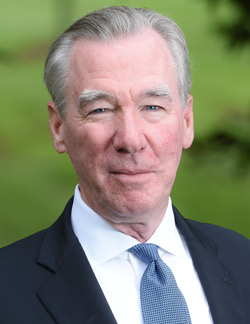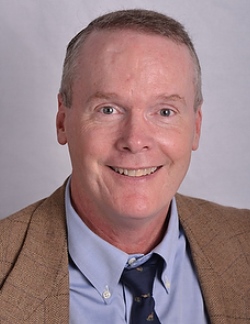Saint John Henry Newman wrote in The Idea of a University that “education implies an action upon our mental nature, and the formation of a character; it is something individual and permanent, and is commonly spoken of in connection with religion and virtue.”
But what is the university in light of the challenges posed by COVID-19? Can the university still fulfill her mission? Has the essence of the university emerged more clearly, and what can we learn from past eras of education — ancient, medieval, modern, present day — about what the university is or should be?
The Catholic University of America’s President John Garvey, IHE Executive Director Joseph Capizzi, IHE Fellow Jennifer Frey, and IHE Fellow Mark J. Clark engage in a panel discussion on the idea of the university in the time of COVID-19.

John Garvey became the 15th president of The Catholic University of America July 1, 2010. He is a nationally recognized expert in constitutional law, religious liberty, and the First Amendment. He has won distinguished fellowships and teaching awards and served as the 2008 president of the Association of American Law Schools. President Garvey is the author or coauthor of numerous books, including What are Freedoms For? (1996); Religion and the Constitution (2011), which won the Alpha Sigma Nu Jesuit book award; and Sexuality and the U.S. Catholic Church (2007), which won the Catholic Press Association Award. He received his A.B. summa cum laude from Notre Dame in 1970 and a J.D. from Harvard Law School in 1974. President Garvey and his wife Jeanne Walter Garvey have five children, 23 grandchildren, and a rescue dog named Gus.

Joseph E. Capizzi is an ordinary professor of moral theology at The Catholic University of America. He teaches in the areas of social and political theology, with special interests in issues in peace and war, citizenship, political authority, and Augustinian theology. He has written, lectured, and published widely on just war theory, bioethics, the history of moral theology, and political liberalism. Dr. Capizzi is the Executive Director of the Institute for Human Ecology at The Catholic University of America. He received his B.A. from the University of Virginia, a Masters in Theological Studies from Emory University, and both an M.A. and Ph.D. in Theology from the University of Notre Dame. He lives in Maryland with his wife and six children.

Jennifer Frey is an associate professor of philosophy at the University of South Carolina. She earned her doctorate in philosophy at the University of Pittsburgh, where she worked under Michael Thompson and John McDowell. She earned her B.A. in philosophy and medieval studies with a classics minor at Indiana University-Bloomington. Her research interest lies at the intersection of philosophy of action, ethics, and meta-ethics. She has co-edited a book entitled Self-Transcendence and Virtue, which was part of the work she did as principal investigator on a major three year research project, “Virtue, Happiness, and Meaning of Life.” Dr. Frey also writes for The Virtue Blog and hosts a popular philosophy, theology, and literature podcast sponsored by the IHE, “Sacred and Profane Love.”

Mark J. Clark is an ordinary professor of medieval theology and received his Ph.D. in Medieval History at Columbia University in 2002. His specialty is the history of medieval theology and in particular the Bible and theology during the second half of the twelfth century. During the past seven years he has travelled frequently to Europe (to Paris and Troyes in France, and to Bologna, Padua, and Rome in Italy) to lecture on the development of the first university textbooks, which became the basis for the teaching of the Bible in universities across Europe for centuries. He has a contract with the flagship Medieval Law and Theology Series of PIMS Press to publish six books over the next ten years (a monograph followed by texts and translations). Dr. Clark also earned a law degree from Duke University, worked as an attorney with Arnall, Golden, and Gregory in Atlanta, Georgia, specializing in the then-incipient field of intellectual property. He left the practice of law first to sing professionally both in the United States and in Europe, and subsequently embarked on a career as a teacher and professor.



